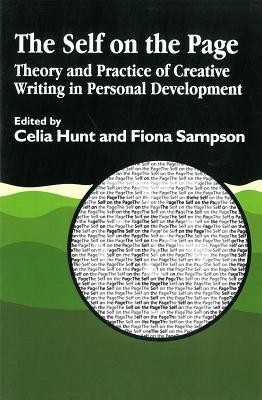
- We will send in 10–14 business days.
- Publisher: Jessica Kingsley Publishers
- ISBN-10: 1853024708
- ISBN-13: 9781853024702
- Format: 15.7 x 23.2 x 1.2 cm, minkšti viršeliai
- Language: English
- SAVE -10% with code: EXTRA
The Self on the Page (e-book) (used book) | bookbook.eu
Reviews
Description
Examining the potential of creative writing as a therapeutic tool, particularly in terms of its influence on the self and personal development, The Self on the Page is divided into two parts. In Part One representative practitioners provide an overview of current work in the field, based on their experience of conducting courses, workshops and research projects with creative writing students, and clients as diverse as people with learning disabilities or dementia and people in hospices, using various genres of creative writing from poetry to autobiography and literary fiction. This section also contains many practical suggestions for writing techniques that can be used for personal development, whether working with writers' groups or with client groups in health care and the social services.
Part Two explores the theoretical background to the therapeutic uses of creative writing, with particular reference to psychoanalysis, philosophy of language, and literary and social theory. Illustrating a wide range of different approaches, the contributors provide an introduction to thinking about creative writing in a personal development context with suggestions for further reading, and look at the potential evolution of therapeutic creative writing in the future. Academics with an interest in textual practice, language and cultural theory; practitioners and theorists of psychotherapy and psychoanalysis; arts therapists and their educators; arts providers.EXTRA 10 % discount with code: EXTRA
The promotion ends in 21d.13:39:44
The discount code is valid when purchasing from 10 €. Discounts do not stack.
- Publisher: Jessica Kingsley Publishers
- ISBN-10: 1853024708
- ISBN-13: 9781853024702
- Format: 15.7 x 23.2 x 1.2 cm, minkšti viršeliai
- Language: English English
Examining the potential of creative writing as a therapeutic tool, particularly in terms of its influence on the self and personal development, The Self on the Page is divided into two parts. In Part One representative practitioners provide an overview of current work in the field, based on their experience of conducting courses, workshops and research projects with creative writing students, and clients as diverse as people with learning disabilities or dementia and people in hospices, using various genres of creative writing from poetry to autobiography and literary fiction. This section also contains many practical suggestions for writing techniques that can be used for personal development, whether working with writers' groups or with client groups in health care and the social services.
Part Two explores the theoretical background to the therapeutic uses of creative writing, with particular reference to psychoanalysis, philosophy of language, and literary and social theory. Illustrating a wide range of different approaches, the contributors provide an introduction to thinking about creative writing in a personal development context with suggestions for further reading, and look at the potential evolution of therapeutic creative writing in the future. Academics with an interest in textual practice, language and cultural theory; practitioners and theorists of psychotherapy and psychoanalysis; arts therapists and their educators; arts providers.

Reviews